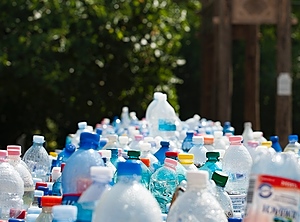PLASTICS RECYCLING CANADA
CPP releases guidance to help firms following the Golden Design Rules for Plastic Packaging
 The nine Golden Design rules aim to address the complexity of plastic packaging (Photo: Pexels/Mali Maeder) |
The Canada Plastics Pact (CPP) has released guidance to support Canadian businesses that are implementing The Golden Design Rules for Plastic Packaging. These rules, which are voluntary, independent, and time-bound commitments, have been developed by The Consumer Goods Forum’s (www.theconsumergoodsforum.org) Plastic Waste Coalition of Action.
CPP said the guidance outlines specific design changes aligned with globally recognised technical guidelines and targets laid out in the Ellen MacArthur Foundation’s (EMF, Cowes, UK; www.ellenmacarthurfoundation.org) New Plastics Economy Global Commitment. CPP joined EMF’s global Plastics Pact network last year (see Plasteurope.com of 18.02.2021).
The nine Golden Design rules aim to address the complexity of plastic packaging, which is hindered – for recycling purposes – by poor design, the inclusion of problematic materials, excess packaging, and the low commercial value of post-consumer recycled content.
The rules include increasing recycling value in PET, rigid HDPE, polypropylene, and flexible consumer packaging; removing problematic elements; eliminating excess headspace in flexible packaging; reducing plastic overwraps and virgin plastic use in business-to-business packaging; and using on-pack recycling instructions.
Galen Weston, president and chairman of Loblaw Companies (Brampton, Ontario, Canada; www.loblaw.ca), said, “The Golden Design Rules offer our industry the clarity and opportunity to drive circularity and address plastic pollution. It’s our job to lead, partner, and apply urgency so these fundamental design changes become the industry norm. Smarter systems begin with smarter material choices.”
CPP said 30 Canadian companies have already committed to 50% or more of the Golden Design rules. Participants include major brand owners such as Coca-Cola Canada, Colgate-Palmolive, Kraft Heinz Canada, McCain Foods, and Unilever Canada, among others.
The rules are publicly available through a new microsite hosted on CPP’s main website. Late last year, CPP outlined its roadmap to 2025 to eliminate plastics waste (see Plasteurope.com of 15.11.2021).
CPP said the guidance outlines specific design changes aligned with globally recognised technical guidelines and targets laid out in the Ellen MacArthur Foundation’s (EMF, Cowes, UK; www.ellenmacarthurfoundation.org) New Plastics Economy Global Commitment. CPP joined EMF’s global Plastics Pact network last year (see Plasteurope.com of 18.02.2021).
The nine Golden Design rules aim to address the complexity of plastic packaging, which is hindered – for recycling purposes – by poor design, the inclusion of problematic materials, excess packaging, and the low commercial value of post-consumer recycled content.
The rules include increasing recycling value in PET, rigid HDPE, polypropylene, and flexible consumer packaging; removing problematic elements; eliminating excess headspace in flexible packaging; reducing plastic overwraps and virgin plastic use in business-to-business packaging; and using on-pack recycling instructions.
Galen Weston, president and chairman of Loblaw Companies (Brampton, Ontario, Canada; www.loblaw.ca), said, “The Golden Design Rules offer our industry the clarity and opportunity to drive circularity and address plastic pollution. It’s our job to lead, partner, and apply urgency so these fundamental design changes become the industry norm. Smarter systems begin with smarter material choices.”
CPP said 30 Canadian companies have already committed to 50% or more of the Golden Design rules. Participants include major brand owners such as Coca-Cola Canada, Colgate-Palmolive, Kraft Heinz Canada, McCain Foods, and Unilever Canada, among others.
The rules are publicly available through a new microsite hosted on CPP’s main website. Late last year, CPP outlined its roadmap to 2025 to eliminate plastics waste (see Plasteurope.com of 15.11.2021).
25.04.2022 Plasteurope.com [250121-0]
Published on 25.04.2022
